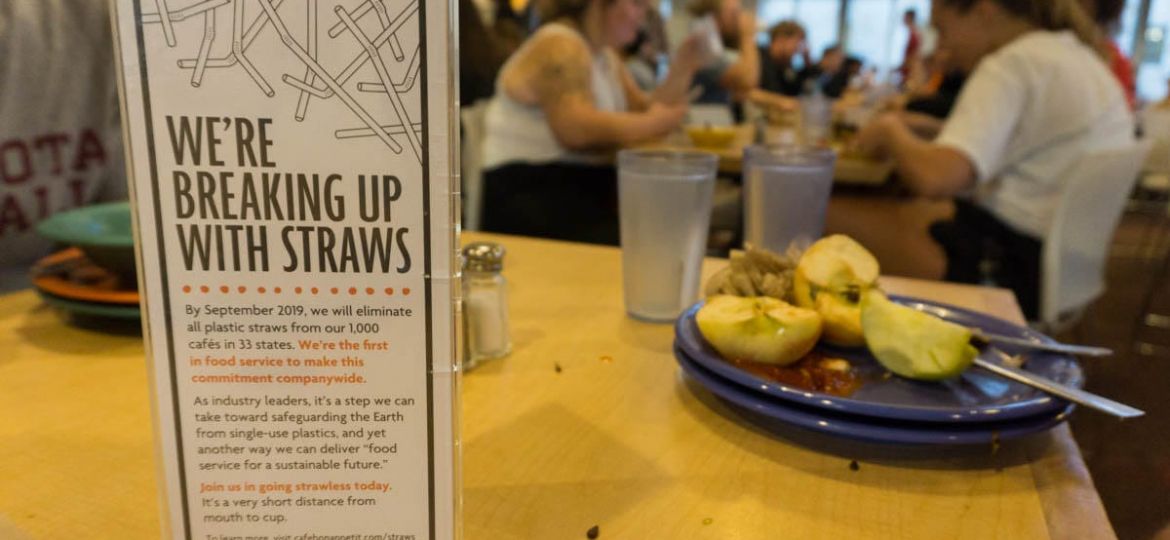
By now, most St. Olaf students have probably noticed the signs around the Cage that read, “WE’RE BREAKING UP WITH STRAWS.” The sign goes on to explain that by September 2019, Bon Appétit, our school catering company, plans to “eliminate all plastic straws from [their] 1,000 cafés.”
Since there are no straws available in Stav Hall, the change would impact the Cage.
“It looks like disposable straws will soon be phased out, if not quite yet, and there will be options for people with disabilities. That being said, is it worth it?” – Cristiana Hawthorne ’20
On one hand, this change will not greatly impact a lot of students’ day-to-day life. In an email, when asked about how students reacted upon reading the sign, Cage worker Eva Knee ’20 said most negative reactions were small.
“People at St. Olaf seem to be very conscious of the damage that straws are doing to our Earth and are happy to do a small part in opposing that damage,” Knee said.
On the other hand, however, some people with disabilities depend on straws to be able to drink. People with limited jaw and muscle control might find it difficult or impossible to drink without one.
Paper straws are often too soft and destructible to be of much use. Reusable straws sometimes work, but it may be hard for someone with a disability to clean them. Moreover, people with disabilities shouldn’t have to worry about having a straw with them at all times.
For someone who does not need a straw, this change could be an annoyance, but for someone who does, it would mean having to go somewhere else to get a drink or to go without any.
Some St. Olaf students have expressed this concern for people with disabilities on campus. In a longer post about the environmental impacts of straws, Bon Appétit wrote on their website (www.cafebonappetit.com/straws), “We will keep a small reserve of plastic straws for people with disabilities and access issues.”
When asked over email about whether there would be straws upon request, the response I received was that due to the necessity of straws for disabled people, Bon Appétit tried compostable straws. Eventually, however, they removed the compostable straws as well.
On top of getting rid of straws being an ableist issue, the wording of the sign itself is ableist.
“It’s a very short distance from mouth to cup,” the sign reads.
For some people, this is not the case. Multiple St. Olaf students have reached out to Bon Appétit. In response, Bon Appétit’s general manager, Traci Quinnell, shared that a small reserve of plastic straws will be available upon request.
It looks like straws will soon be almost completely phased out, if not quite yet, and there will be options for people with disabilities. That being said, is getting rid of straws worth it?
There is debate over the true environmental impact straws have on our planet. In my opinion, there are probably bigger fish to fry. By removing plastic straws from general access, however, we start to break the habit of using unsustainable materials.
For those who are able, there are many campus alternatives. First, go without a straw completely. The Cage has been putting cold drinks in cups that fit the hot drink sipping lid.
If straws are an integral part of your life, the Student Government Association gave out free plastic tumblers with straws at the co-curricular fair, and there are similar cups for sale in the St. Olaf bookstore.
Looking for a cheaper option? Target has a set of 5 reusable straws for $3.99 and Dollar Tree has tumblers for $1 each.
Cristiana Hawthorne ’20 (hawtho1@stolaf.edu) is from Edina, Minn. Her major is French.








